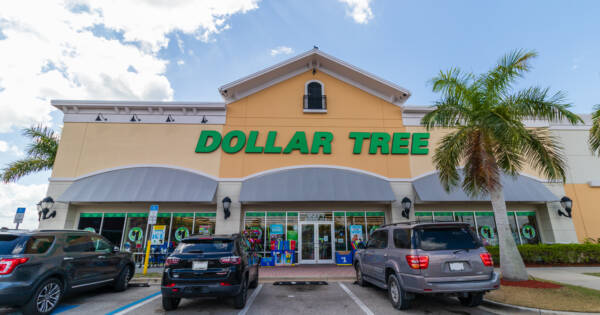Renting a car in the internet age can be a bit of a bait-and-switch proposition. Auto rental agencies and other deal aggregators often promote incredibly low daily rates. Consumers are then hit with hidden fees and extra charges that inflate prices out of affordable territory. So, how do you score a genuine deal on a rental car? How can you sidestep these sneaky tricks that rental agencies use to extract extra money out of your pocket? We have some advice.
Pay in Advance
When you book online through most major rental agencies, you’ll often be quoted two prices. One is a “pay now” price, while the other is a different, higher “pay at the counter” rate. The gap between these rates can climb to 20% or more. That’s money you can put back in your pocket by simply paying up front.
A word of warning, though. You should always check out the agency’s refund and cancellation policy before you prepay. In the majority of cases, you’ll be able to get your money back if you need to cancel your reservation. There’s usually a grace period. So long as you don’t wait until the last minute, you should be fine. However, policies vary among different companies. Don’t assume any universal truths apply when it comes to annulling a prepaid car rental.
Avoid Airports
Here’s a telling experiment you can run. Go to pretty much any major rental company’s website and enter some test dates. Search for the cost of a rental on those dates originating and terminating at the nearest major international airport. Then, run the same search on the same company’s website in the same metro area, but away from the airport. The difference in price may shock you.
There’s a reason for this. Travelers are often willing to pay a premium for the convenience of renting a car directly at the airport. Rental companies also have to fork over a lot of money to lease operating facilities on airport premises. Those inflated costs are usually passed on to consumers.
Save yourself some money and rent your car at another convenient location, such as one that’s close to your hotel or homestay. Even though you’ll have to arrange an alternate way to get from the airport to the city and vice-versa, the savings are usually well worth it. A $20 taxi ride could have you hundreds on extra rental fees.
Check Your Existing Insurance Coverage
Before you rent your next car, check with your regular car insurance company. Many policies extend to short-term domestic car rentals, freeing you of the need to carry the additional coverage you’ll inevitably be offered.
Industry insiders frequently characterize the expensive daily insurance policies frontline staff are required to offer as little more than a moneymaker. You can safely refuse the offer if your existing policy covers you. Many banks and credit card companies also provide car rental insurance to account holders who use their cards to pay for the full cost of the rental. Check with your credit card provider to see if you’re covered when you rent a car. There’s a good chance you are. This is a great alternative option if you don’t actually own your own car and auto insurance policy, too.
Decline Unnecessary Extras
The quintessential example here is the added cost of activating a rental vehicle’s GPS system. This carries a hefty daily charge, even though your smartphone already has built-in GPS that can provide you with identical functionality.
Similarly, decline offers for satellite radio, coverage for additional drivers, and any other extras you don’t need. Also, read the rental agreement before you sign it. Some unscrupulous rental agencies will charge you for these add-ons unless you explicitly state you don’t want them included.
Shop Around for Promotions and Deals
Deal aggregators are your friend, as long as you make sure the quotes you’re given are the final rates, including all taxes and fees. These sites directly compare rental prices offered by competing businesses, which prompts car rental agencies to make their very best rates available to online shoppers. For best results, try multiple aggregators to see which one delivers the lowest prices. It’s the same old advice as with any other expense, but shopping around will save you some cash.
Downsize Your Vehicle
The difference in price between a full-size rental and a compact or economy rental can be enormous. Chances are you won’t need a larger vehicle unless you need to accommodate three or more adults or are hauling serious cargo. Save some money and select the smallest comfortable vehicle size. As an added benefit, this will likely result in a more fuel-efficient option, which will also save you money on gas. Why rent space you won’t even use?
Research Rental Agency Partnerships
Some rental agencies have agreements in place with airlines, banks, travel agencies, and credit card companies. They often offer discount codes or reduced rates to customers who book through an established partner. These possibilities are worth investigating, especially if you’re looking at renting a car for more than a week. Did you fly with WestJet? See if they have a preferred car rental partner. Paying for your rental car with an American Express? There might be a discount if you use their rental company of choice.
Say “No Thanks” to Gas Prepayments
When you rent a car, you’re obligated to return the vehicle with at least as much fuel as it had when you checked it out. The fuel level will be noted on your rental agreement. Failing to honor this requirement will result in massively inflated fuel surcharges. Most rental companies will offer you a “get out of jail free” card, that lets you lock in your gas refueling for less than the applicable penalties would cost. But, invariably, their gas prices are far higher than you’d pay at the pump.
The math here is simple: just say no. Make sure to set aside time to refuel the vehicle before you return it, and don’t forget to present your receipt.
Consider Peer-to-Peer Options
Sites like Airbnb transformed the hospitality industry, introducing homestays as an appealing alternative to traditional hotels. Peer-to-peer car rentals like Turo are now available in many places as well. It’s a new business model, so some localities have insurance law prevents them from operating. However, if you’re headed to a jurisdiction that allows them, research your options. You could stand to save a bundle and even enjoy a better or larger vehicle than you otherwise would have rented.
Final Words of Advice
There’s one last aspect of renting a car you should consider before you decline insurance coverage or assume your current policy or credit card protects you. It refers to “loss of use” policies, which car rental companies can charge if the vehicle you return requires extensive repairs and needs to be taken out of service. The “loss of use” refers to the money the rental company could have earned if the car didn’t need repairs and remained available for rent. It’s usually at least the full regular price of its daily rental rate.
If you’re going to rely on your current auto insurance instead of purchasing insurance from the rental agency, loss of use might not be covered. However, many credit cards do cover it. Check in advance, then use your credit card to pay for the full cost of the rental, while invoking your existing auto insurance as your protection. This will leave you doubly safeguarded and ensure you get to keep the savings you earned.
 Shutterstock
Shutterstock







